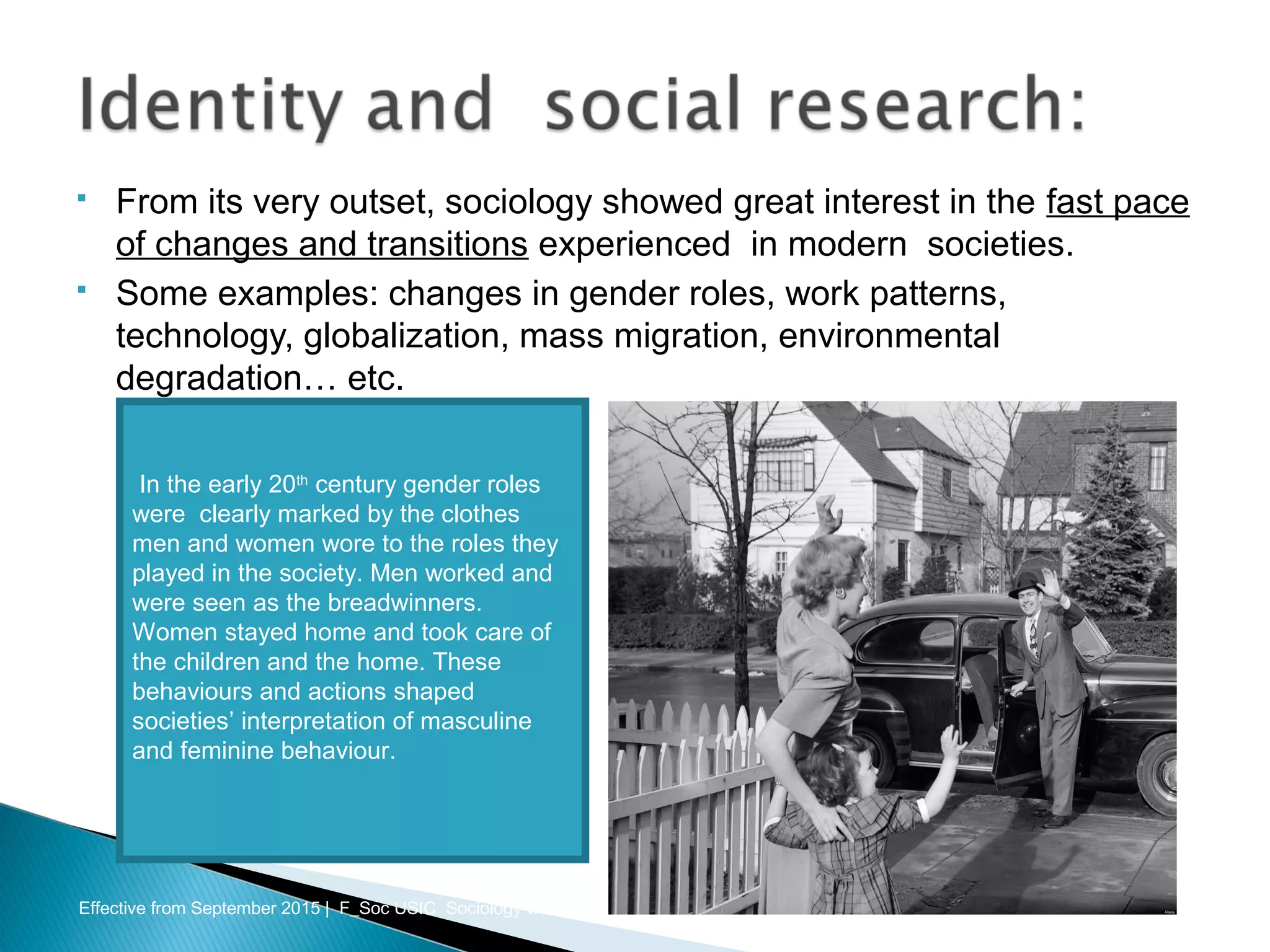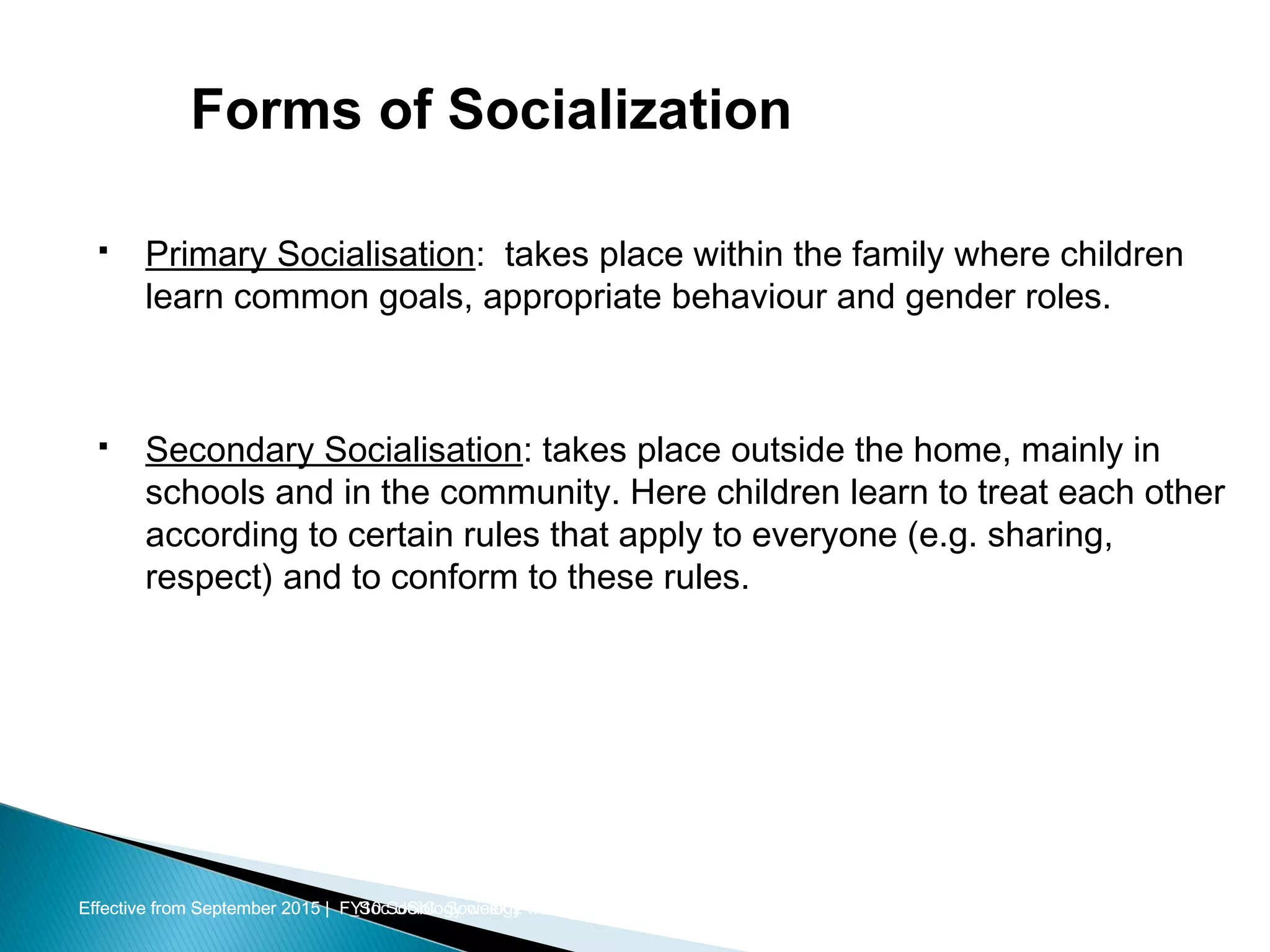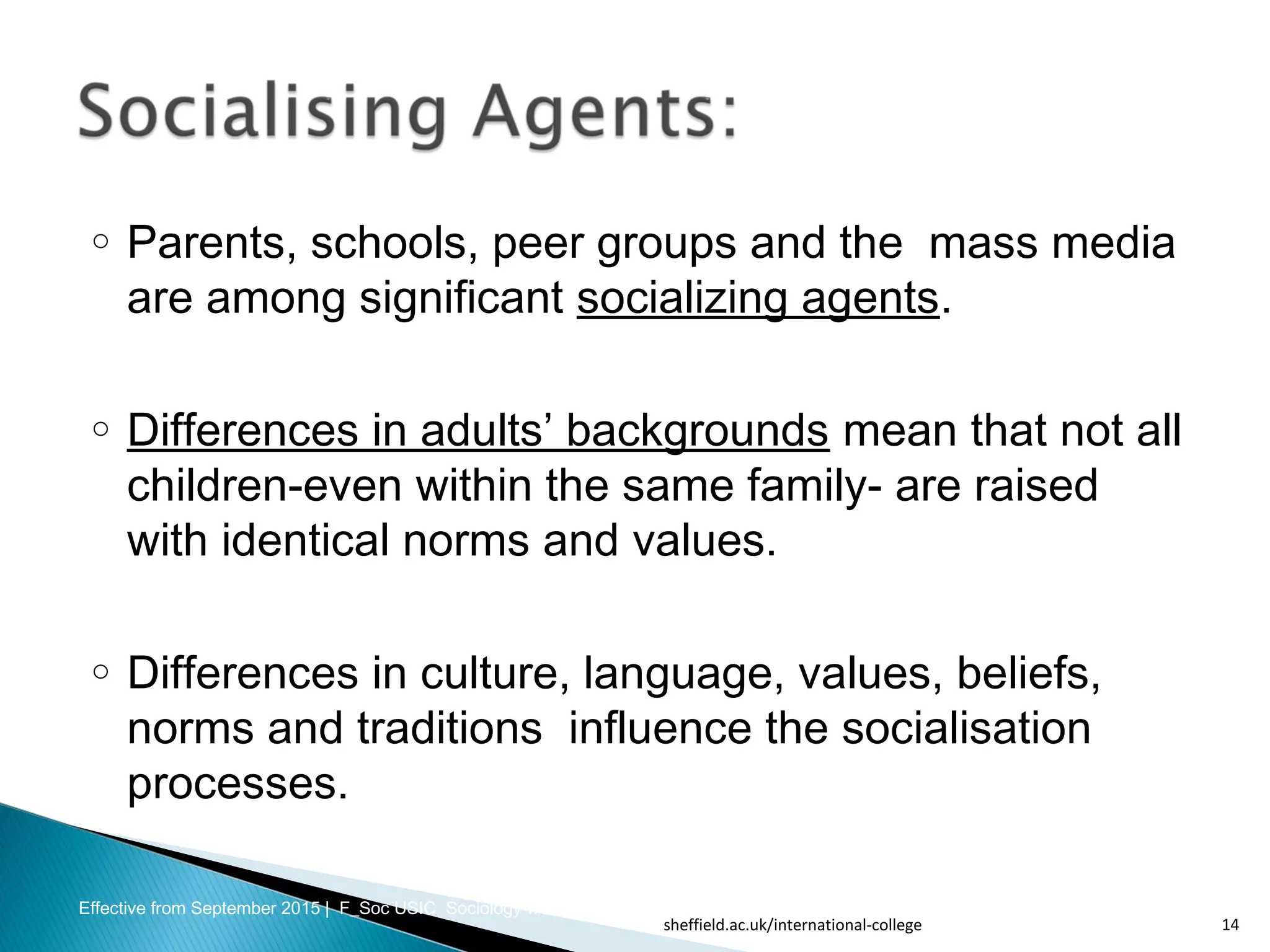This lecture discusses identity and socialization. It defines identity as how one sees themselves and how others perceive them. Sources of identity include nationality, ethnicity, gender, religion, and social class. Identity is formed through both individual agency and social/cultural influences. The lecture also examines primary and secondary socialization, how socialization agents like family and schools influence identity formation, and debates around the interplay between structure and agency in identity development.















